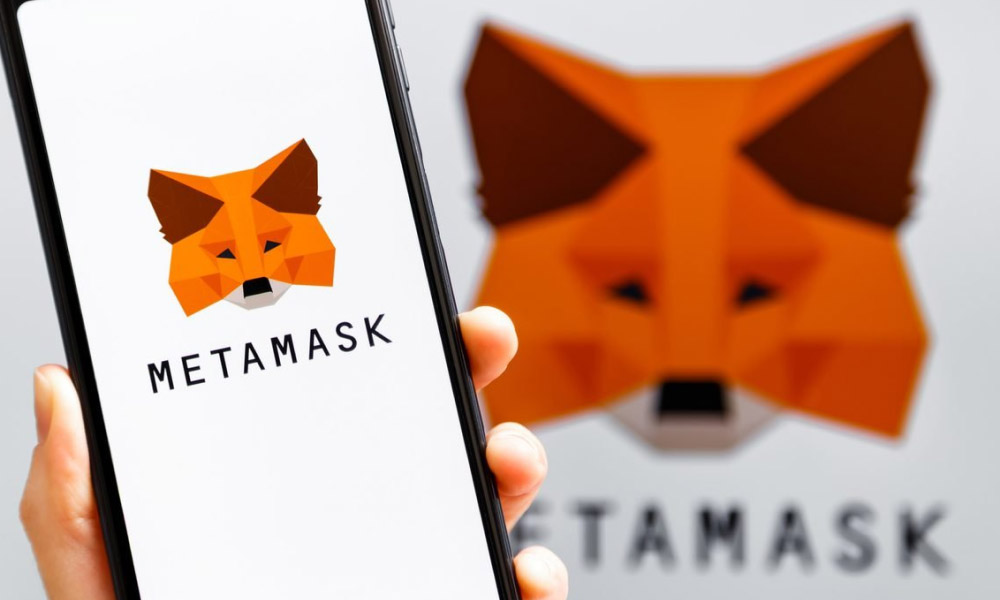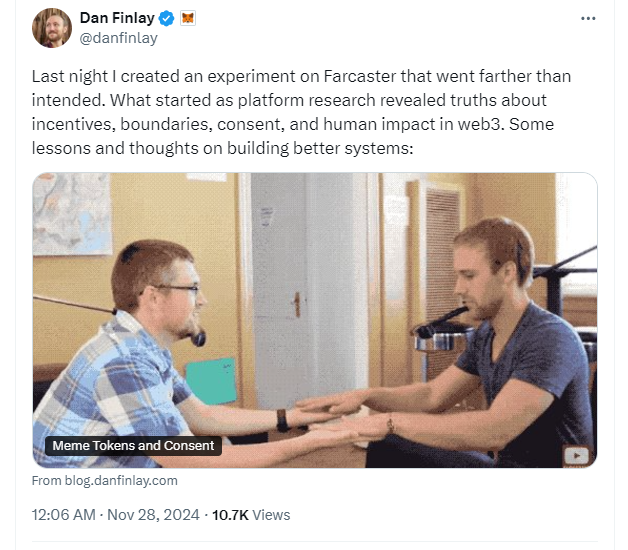MetaMask co-founder Dan Finlay’s memecoin experiment shows Web3’s consent, trust, and investor expectations.

Dan Finlay, co-founder of the crypto wallet platform MetaMask, recently conducted an experiment with memecoins to explore issues surrounding consent and trust in the Web3 ecosystem.
Finlay minted two tokens — “Consent” on Ethereum and “I Don’t Consent” on Solana — and described the experience as “deeply unpleasant in predictable ways.”
The experiment offered an unsettling view of the intersection between hype and responsibility, tying his findings to broader discussions on consent in artificial intelligence and public platforms.
Finlay emphasized the significance of these findings, which extend beyond Web3 to the broader challenge of balancing public visibility with user expectations. He noted:
“This isn’t an appeal to ethics, this is an appeal to making better products. Your app doesn’t need to become a pool of toxic waste. Your community doesn’t need to be peppered with people issuing personal threats. Your shares don’t have to be diluted by anonymous whales.”
Memecoins and Financial Risks
Finlay’s experiment highlighted the speculative and risky nature of memecoins. Using Ethereum’s Clanker bot and Solana’s Pump.fun platform, he launched the two tokens and observed rapid trading activity that briefly inflated their value, bringing his holdings to over $100,000.
Despite this, the lack of clear structure and purpose for the tokens left participants vulnerable to financial losses. Finlay explained that people were “constantly trying to assign greater meaning to” the tokens.
The experiment also drew backlash from investors, some of whom issued threats or demanded long-term plans for the assets. Reflecting on the situation, Finlay remarked:
“The only act of consent that seems unambiguous in this memecoin environment is that the buyers are definitely consenting to put their money into something. But without that thing being well defined, what kind of consent is that, anyway?”
The Blurred Lines of Consent
Finlay compared the memecoin space to ongoing debates about consent in digital platforms, particularly in artificial intelligence. He referenced Bluesky, where public posts were used for AI training without explicit user consent, highlighting a “disconnect between the protocol expectations of consent and the social expectations of consent.”
He observed that these “ill-defined social definitions of consent” are equally relevant to the memecoin environment.

Implications for Web3
Finlay’s findings point to the need for better infrastructure and tools to address issues of consent, user expectations, and investor concerns.
Moreover, he suggested that improved “tools and incentives” could make the memecoin space “much more interesting, fun and useful and actually improve the vibes.”
He advocated for systems allowing token issuers “fine-grained control over their tokens,” such as restricting markets to specific communities or implementing structured sale methods.
As AI and blockchain technologies increasingly integrate with memecoins, Finlay’s experiment underscores the importance of systems that build trust, respect user expectations, and enhance transparency around consent.
